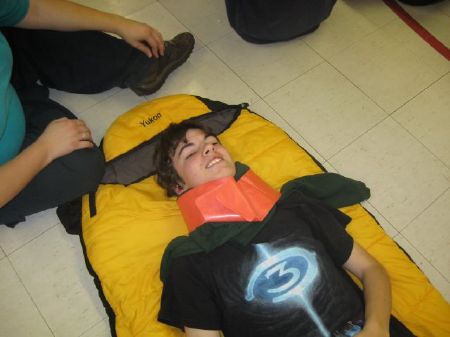Previous to travelling to the High Arctic, it is usual to be trained in CPR or First Aid of some sort. Nevertheless, our research group required everyone travelling to Devon Island this year to have a valid Wilderness and Remote First Aid Certification. Three of us went to LMac Community CPR. The main difference with the Wilderness and Remote course, compared to other more classical courses, is that we have a very poor access to emergency services, so the time required before an evacuation or the arrival of a health professional can be dozen hours or a few days, depending on the weather and our location. When an emergency occur, care must be provided for much longer, where in any urban area about fifteen minutes will be considered quite long.
We were 3 from our team at the course, where we practiced the order of action during an intervention (Primary, Secondary checks, etc). There was a strong emphasis on simulated and mocked accidents, often impossible to resolve or with 'deadly' outcomes, where we had to put our mind to work and try to save the folks that were recoverable.
The trainers were very competent and were also putting a lot of work to make the scenarios as realist as possible. In the picture, the rescuers in training thought that the wounded could have a neck injury and therefore secured it before transporting the victim in a shelter.

This is an example of the situation we had to deal with - without access to 911 of course. Credits LMac-CPR.
It was a great training - always in the hope we do not really need it right...
More pictures from the training here : LMac Community CPR : action pics